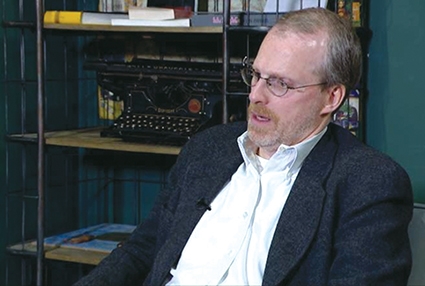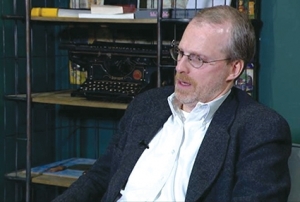David Kramer: Georgia Has a Strong Ally in the Pentagon
Last week, Tbilisi hosted some of the most high-ranking opinion-makers and experts in the Western world. Francis Fukuyama, Edward Lucas and David Kramer were some of the more illustrious names to give public lectures and seminars over a five-day visit, courtesy of the Economic Policy Research Center and Stanford University, implementing their joint program – the prestigious Leadership Academy for Development in Georgia.
Panorama TV show and GEORGIA TODAY spoke with both Mr. Fukuyama and Mr. Kramer- on the subject of populism with the former and on international security with the latter. This week we offer you the interview with David Kramer, former President of Freedom House and currently a Senior Director for Human Rights and Human Freedoms at the McCain Institute.
After the 2012 elections, which brought Georgian Dream to power, most Western outlets criticized a billionaire at the reins of the country, and media here came under pressure. Do you see the irony now with Trump coming into power?
For many years, US foreign assistance emphasized the importance of the rule of law, human rights and transparency. It’s more complicated now, especially that last part. We’ve not had a president like Donald Trump before and [his profile] has created some complications. I cannot sit here and pretend there are no concerns over that. Similarly, his characterization of the media as “the enemy of the American people” is damaging. It’s not helpful for the American president to describe media he doesn’t like as an enemy of the people. Other leaders around the world will hear that and think, hey, if the American President can say that, I certainly can. So, I hope over time President Trump will understand that what he says as president has a huge impact all over the world – that its different being a candidate and actually sitting in the Oval Office itself.
With information coming to light regarding Trump’s ties with Russia, how do you think all this will affect Caucasus and Georgia in particular? Should we expect the US focus to shift elsewhere?
This is something that most certainly demands a thorough investigation to make sure it never happens again. The feeling is that if it happened in the US, it can happen anywhere. The positive out of all this is that there is more scrutiny of any efforts from President Trump to reach out to Putin; there is more attention focused on any possible Yalta-2 kind of deal. And you also see how the media coverage in Russia changed – in the early days it was very positive, hopeful narrative, while now there seems to be a lot more skepticism and concern that either he won’t deliver what they hoped for, or that he can may be limited in what he can do.
Before Trump’s presidency, there were talks of a strategic partnership agreement (including military cooperation) as a viable alternative to NATO membership. With Trump in the picture, is this still a possibility?
There is a strong relationship between the Pentagon and Georgia and between NATO and Georgia. It’s certainly far short of membership, but I think this cooperation will continue to help Georgia in maintaining a professional military. Georgia, of course, has already contributed and in a very decisive way – the second largest contingent in Afghanistan is a very significant step. And I’m sure both in the US and in NATO there is appreciation of that. The leadership in the Pentagon is very interested in maintaining this cooperation, these strong ties with Georgia, and I expect it will continue to be so under Secretary Mattis. It would be extremely unusual for the White House to issue an order to stop its relationship with Georgia. That would be big news. And I don’t expect that to happen, I think Secretary Mattis appreciates Georgia’s contributions very much, so you have a strong ally in the Pentagon and the leadership there.
A Brookings Institution article made waves in Georgian media- about Georgia’s Permanent Neutrality status, to be guaranteed by Russia and the US. The price is that Georgia would not be able to join any Western block, including NATO and the EU. Is it realistic?
Michael O’Hanlon’s article? Quite frankly, I think it’s a terrible idea. He’s been arguing over this for a while – he is a very smart scholar and I don’t doubt his integrity, but once again, I think the idea is just terrible. For the most part in Washington there is strong support for maintaining the decades-old policy of Open Doors at NATO. Countries that aspire to join and meet the criteria should be allowed to join. Otherwise, we are granting Russia a de-facto veto power on which country can join NATO and which not. Most people in Washington, at least in Congress, would reject that idea. Pentagon wouldn’t support that either. And moreover, any deal like that with Russia would be determining the future of Georgia and Ukraine without asking them and I think those days should be over. It also means that Russia would respect agreements that it signs and that’s obviously not the case. Go back to 2008, the Sarkozy peace plan – Russia has not abided by that, or the two Minsk deals, and that is just to name a few. Russia, under Putin, has demonstrated it is untrustworthy and doesn’t live up to its commitments, so to tell Ukrainians and Georgians that Russia and the US would guarantee their sovereignty and territorial integrity would only result in them pointing at the 1994 Budapest memorandum which Russia and the US both signed. And we see how well that worked out [for Ukraine].
Vazha Tavberidze












